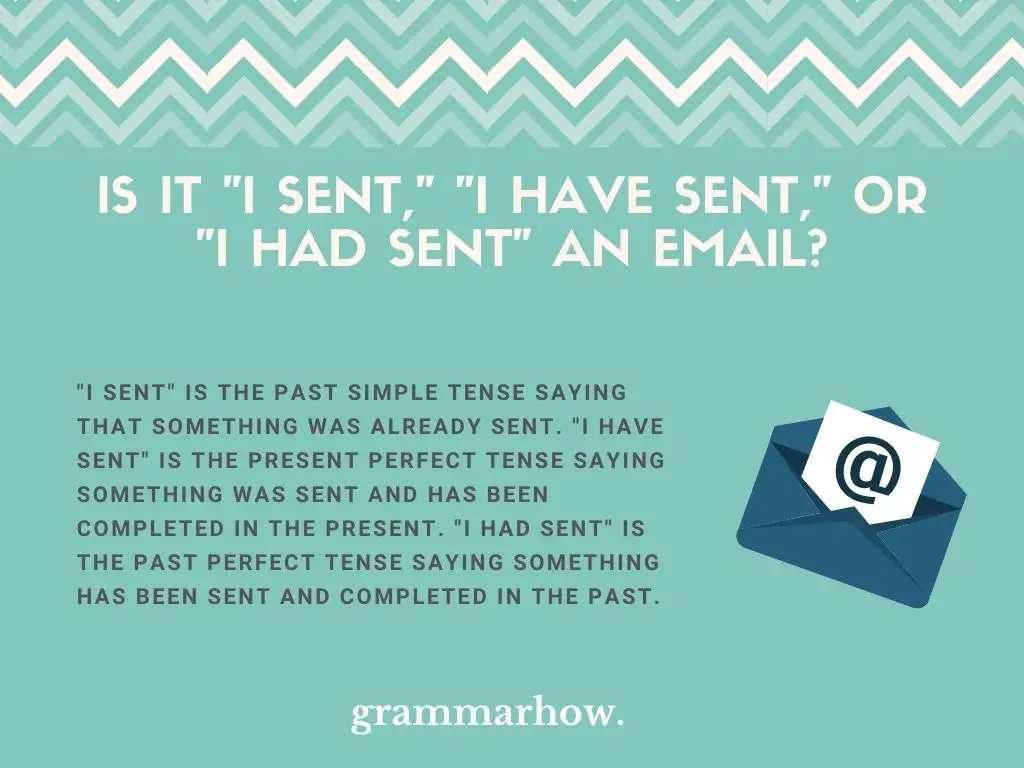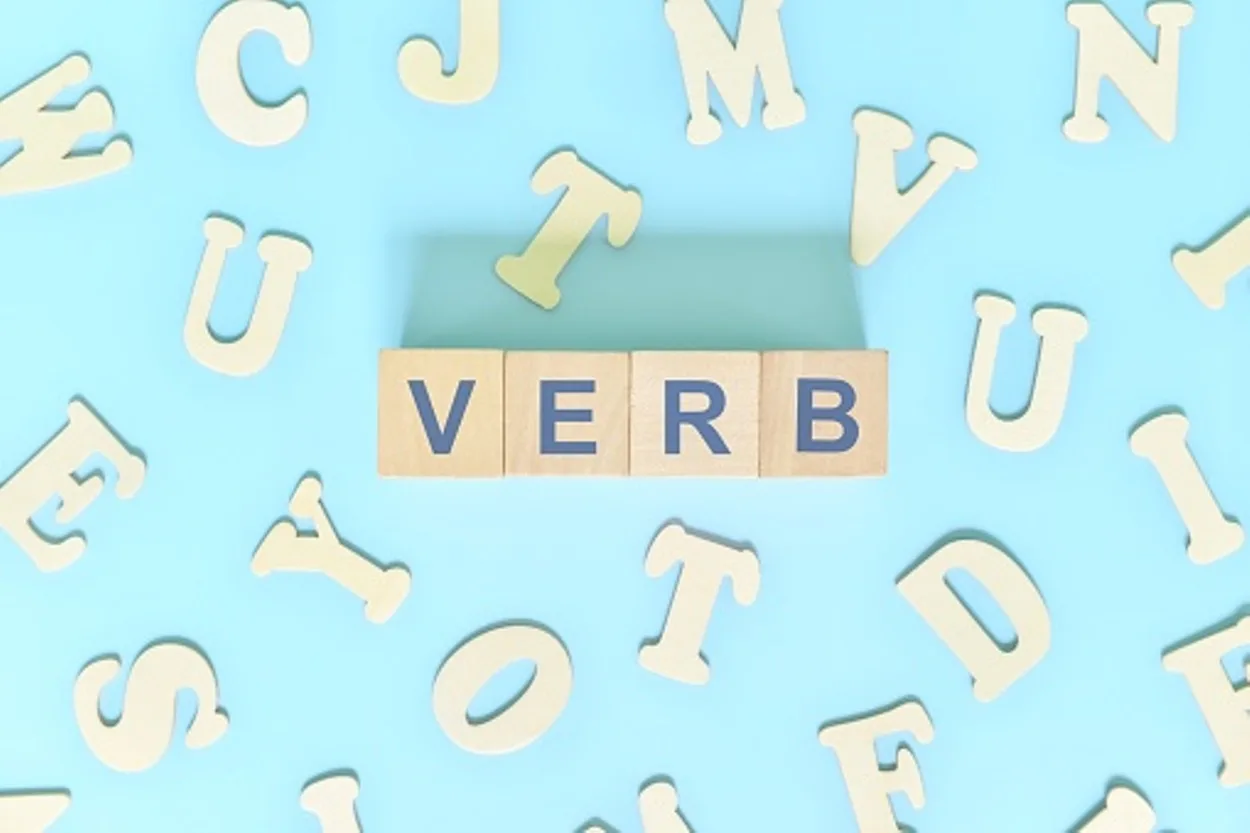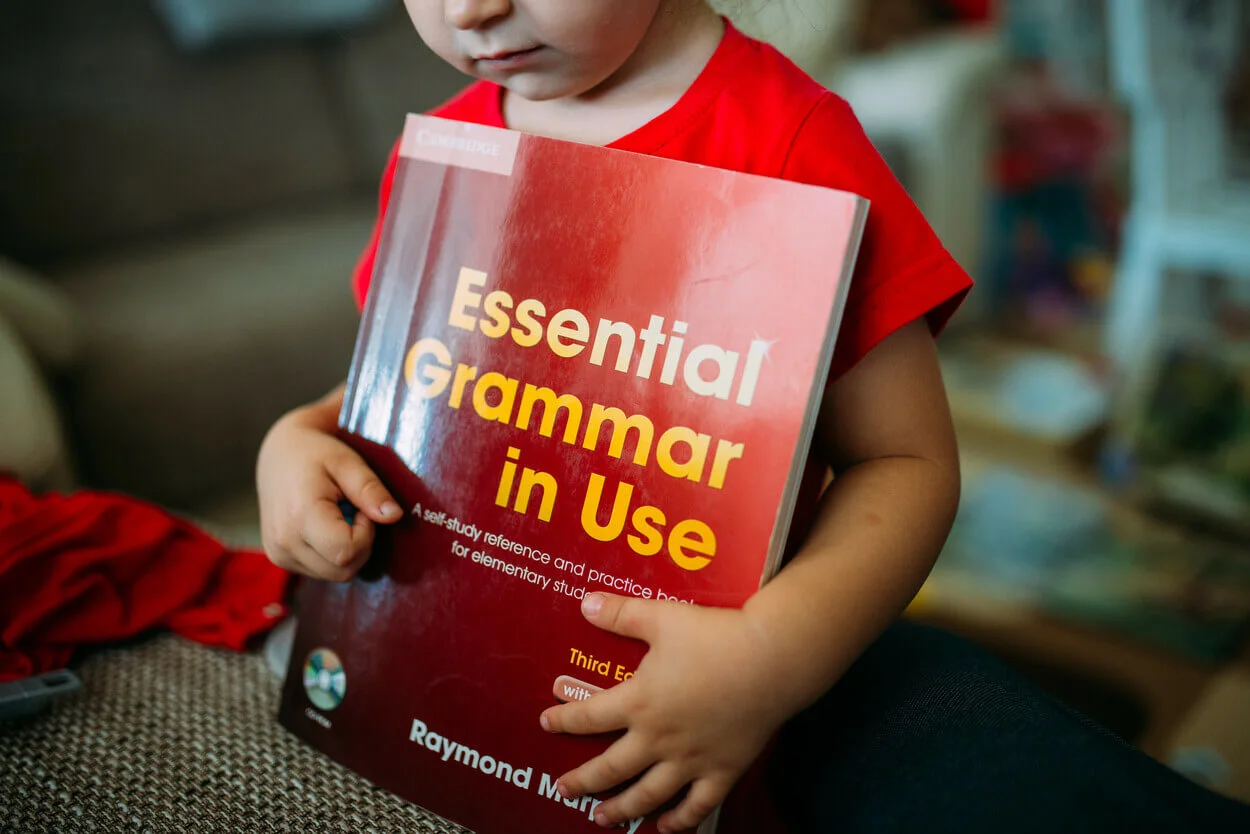Let’s admit it: speaking English is way easier than testing my written English. Why? Because when I’m writing some juicy English sentences, grammar kicks in and I get completely off guard.
Humor aside, Grammar is an essential aspect of language, and it determines how we communicate effectively.
It refers to the set of rules that govern the use of words, phrases, and sentences in a language. Grammar enables us to construct meaningful sentences, express our ideas clearly, and convey our intended meaning to our audience.
In English, tense is one of the fundamental aspects of grammar. It is the form of a verb that indicates when an action happened.
Speaking of which reminds me that in ‘I sent you,’ and ‘I have sent you,’ there’s a tense difference. While the first sentence is in the past tense, the latter is in the perfect present tense.
That’s not it, this article will discuss more differences between “I sent you” and “I have sent you,” with their implications in the English language. So let’s get right into it!
The Basic Difference Between Simple Past And Present Perfect Tense
Before discussing the difference between “I sent you” and “I have sent you,” it’s crucial to understand the difference between the two tenses used in the sentences.
These two tenses are the Simple Past and Present Perfect. The Simple Past tense is used to describe an action that took place in the past, and it is usually indicated by a past tense verb. For example, “I sent you an email yesterday.”
The Present Perfect tense is used to describe an action that happened at an unspecified time in the past or an action that began in the past and is still being performed.
It is indicated by the auxiliary verb “have” or “has” followed by a past participle. For example, “I have sent you a letter.”

Explanation Of “I sent you”
“I sent you” is an example of the Simple Past tense.
It is used to describe an action that took place in the past and is now complete. In this sentence, the verb “sent” is in the past tense, indicating that the action happened at a specific time in the past.
The sentence suggests that the speaker has completed the action and does not expect any further action to be taken. For example, “I sent you a text message, but you didn’t reply.”
Explanation Of “I have sent you”
“I have sent you” is an example of the Present Perfect tense. It is used to describe an action that happened in the past, but the exact time is not specified.
In this sentence, the verb “have sent” is in the Present Perfect tense, indicating that the action started in the past and is still relevant in the present.
The sentence suggests that the speaker is still waiting for the recipient to respond to the action or is expecting some further action to be taken. For example, “I have sent you an email, please check your inbox.”
The Difference In Usage
The difference between “I sent you” and “I have sent you” lies in their usage, and it’s essential to use the correct tense depending on the context of the sentence.
The Simple Past tense is typically used to describe actions that happened at a specific time in the past and are now complete. It is also used to describe a series of completed actions in the past. For example, “I saw a movie last night,” “I ate breakfast at 7 am,” and “I finished my work before 5 pm.”
On the other hand, the Present Perfect tense is typically used to describe an action that happened at an unspecified time in the past, but its effects are still felt in the present.
It’s also used to describe a series of completed actions that are relevant to the present. For example, “I have lived in New Jersey for the past ten years,” “I have read three history books,” and “I have visited six beautiful countries in the World.”
Contextual reference

“I sent you” and “I have sent you” can be used interchangeably in some contexts, but they convey different meanings.
For instance, if someone says, “I sent you an email,” it suggests that the email was sent in the past, and the speaker does not expect any further action to be taken.
However, if someone says, “I have sent you an email,” it suggests that the email was sent in the past, but the speaker is still expecting the recipient to take some action, such as reading or responding to the email.
Another context in which the two tenses can be used interchangeably is when the action was completed recently, and there is no expectation for any further action to be taken.
For example, “I emailed you the letter five minutes ago” and “I have emailed you the letter five minutes ago” deliver the same context and indicate that the action was completed recently, and there is no expectation for any further action to be taken.
However, it’s important to note that the Present Perfect tense cannot be used to describe a specific action that happened at a specific time in the past.
For example, “I have sent you an email at 10 am” is incorrect because the action happened at a specific time in the past, and it cannot be described using the Present Perfect tense. Instead, the correct sentence would be, “I sent you an email at 10 am.”
Reference To Time

Furthermore, the Simple Past tense is often used when the time or duration of the action is important.
For example, “I worked for ten hours yesterday,” “I saw a movie at the cinema last night,” and “I visited my grandparents on Saturday.”
In these sentences, the time or duration of the action is essential, and the Simple Past tense is used to convey that information.
In contrast, the Present Perfect tense is often used when the focus is on the result or outcome of the action.
For example, “I have finished my work,” “I have lost my keys,” and “I have found a new apartment.”
In these sentences, the result or outcome of the action is important, and the Present Perfect tense is used to convey that information.
| “I sent you” (Simple Past) | “I have sent you” (Present Perfect) | |
| Usage | Describes a past action that is now complete | Describes a past action that has an effect on the present |
| Time | Specifies a specific time in the past | Does not specify a specific time in the past |
| Expectation | No expectation for further action | This may indicate an expectation for further action |
| Result | Not focused on the result or outcome of the action | Focused on the result or outcome of the action |
| Examples | “I sent you an email yesterday.” | “I have sent you an email, please check your inbox.” |
FAQs (Frequently Asked Questions)
Is it correct to say I’ve sent you the money?
“I’ve sent you the money,” is a correct sentence. Beware of the order of the primary object (money) and secondary object (you), don’t add a preposition when the secondary object comes before the primary object.
When should I use “I sent you” and when should I use “I have sent you”?
You should use “I sent you” when describing a past action that is now complete and happened at a specific time in the past. Whereas, you should use “I have sent you” when describing a past action that has an effect in the present, but the exact time of the action is not specified.
What is the difference between I’ve send and I’ve sent?
‘Send’ and ‘sent’ are different kinds coming from the same verb. ‘Send’ is the first form verb while, ‘sent’ is the second form of the verb ‘send’, used in past tense sentences.
‘I’ve sent,’ is used to refer to a past action, and ‘I’ve send,’ refers to an action made a while ago, in the present.
Conclusion
“I sent you” and “I have sent you” are two different tenses used in English. “I sent you” is an example of the Simple Past tense, which is used to describe an action that took place in the past and is now complete.
“I have sent you” is an example of the Present Perfect tense, which is used to describe an action that happened in the past, but the exact time is not specified, and the effects of the action are still felt in the present.
The difference between the two tenses lies in their usage, and it’s essential to use the correct tense depending on the context of the sentence.
The Simple Past tense is typically used to describe actions that happened at a specific time in the past and are now complete, while the Present Perfect tense is typically used to describe an action that happened at an unspecified time in the past, but its effects are still felt in the present.
While the two tenses can be used interchangeably in some contexts, it’s important to note that the Present Perfect tense cannot be used to describe a specific action that happened at a specific time in the past.
Therefore, it’s vital to understand the context of the sentence and use the appropriate tense to convey the intended meaning accurately.

